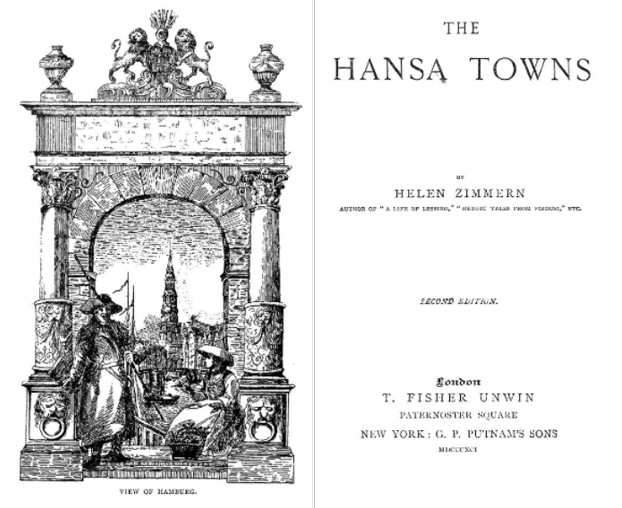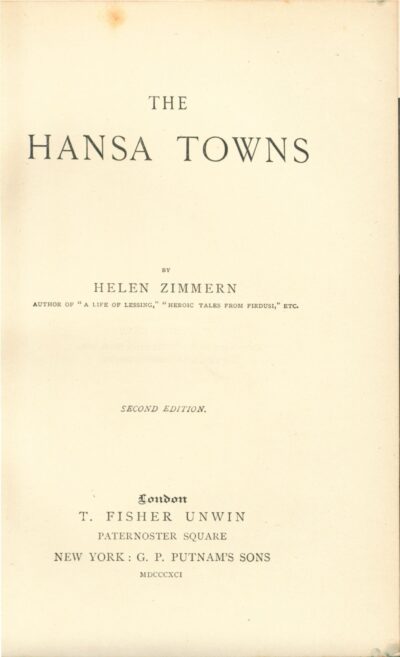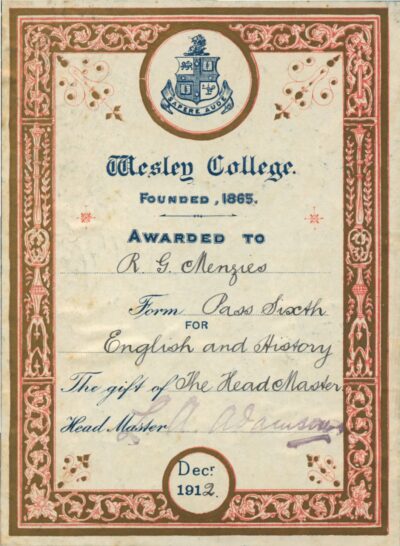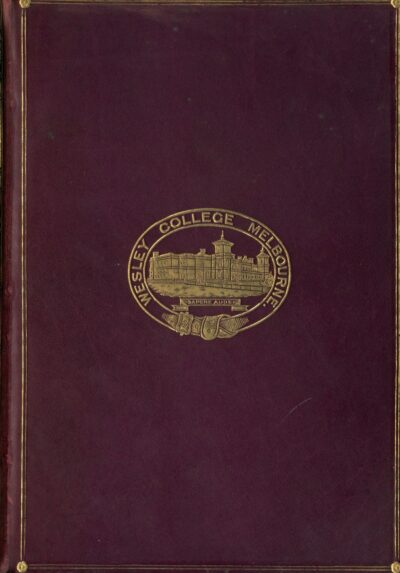Helen Zimmern, The Hansa Towns, 1891
Helen Zimmern was born in Hamburg, Germany in 1846, but just four years later her family emigrated to England to flee religious persecution and the political turmoil that had been associated with the 1848 European revolutions. Naturalised as a British citizen in 1864, she made her name as a writer, journalist, and translator of German and Italian works, who made European culture more accessible to English speakers. She is perhaps best known for translating some of the works of her friend Friedrich Nietzsche, and for being an early feminist who achieved a remarkable level of influence for a woman of the time-period. The latter was also true of her sister, the famous women’s suffrage advocate Alice Zimmern.
As Helen was heavily mixed up in the intellectual milieu of late 19th century Europe, she was interested in the concept and origins of individual liberty. The Hansa Towns is a history of the Hanseatic League, an organisation founded by northern German towns and German merchant communities to protect their mutual trading interests, and which dominated commercial activity in northern Europe in the late medieval period. The League has often been seen as a positive example of the benefits of capitalism and trade, or even as a forerunner of the European Union, but Zimmern’s work focuses on the League as a ‘star of municipal liberty, helping men to hope for and aspire towards those better things, to which it alone could lead them’. It is a story of free towns made up of active, just and enlightened citizens, the growth and triumph of the middle class, and the strengths of federalism.
Robert Menzies received his copy in December 1912 as a gift for winning a prize in history and literature from the Headmaster of Wesley College Lawrence Adamson. Wesley was and is one of Melbourne’s most prestigious schools; notably Adamson was an Oxford graduate who had been called to the English Bar before migrating to Australia for health reasons, and Menzies attended with the benefit of a scholarship. The copy of The Hansa Towns is thus a testament to Menzies’s meritocratic rise into the heart of Melbourne society, as well as his academic prowess and success.
However, the book is perhaps most interesting as an artefact of the nature and breadth of the education he received. As Menzies was just turning 18, he was expected to be grateful for and read a detailed history of a medieval German political organisation. Moreover, that history deliberately espoused Whig liberal values, and ones which Menzies would clearly advocate throughout his political career. It is also worth noting that the book was written by a politically active woman, and perhaps indicates a certain level of acceptance of female political activity which Menzies would later demonstrate with his close working relationship with Elizabeth Couchman. We can thus see the extent to which Menzies was a ‘product of his environment’, albeit a remarkable product of quite a remarkable environment.
You might also like...
Sign up to our newsletter
Sign up for our monthly newsletter to hear the latest news and receive information about upcoming events.







